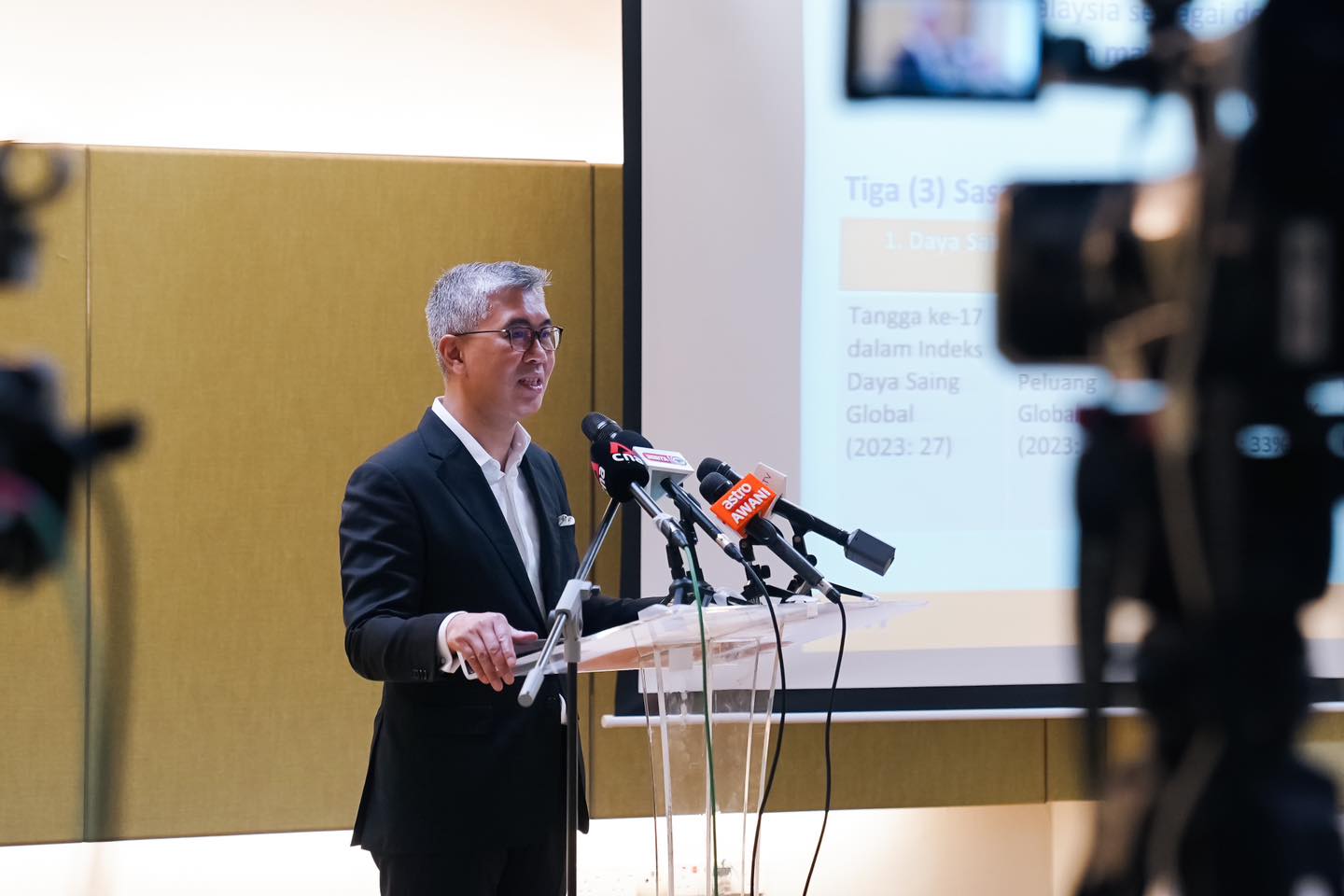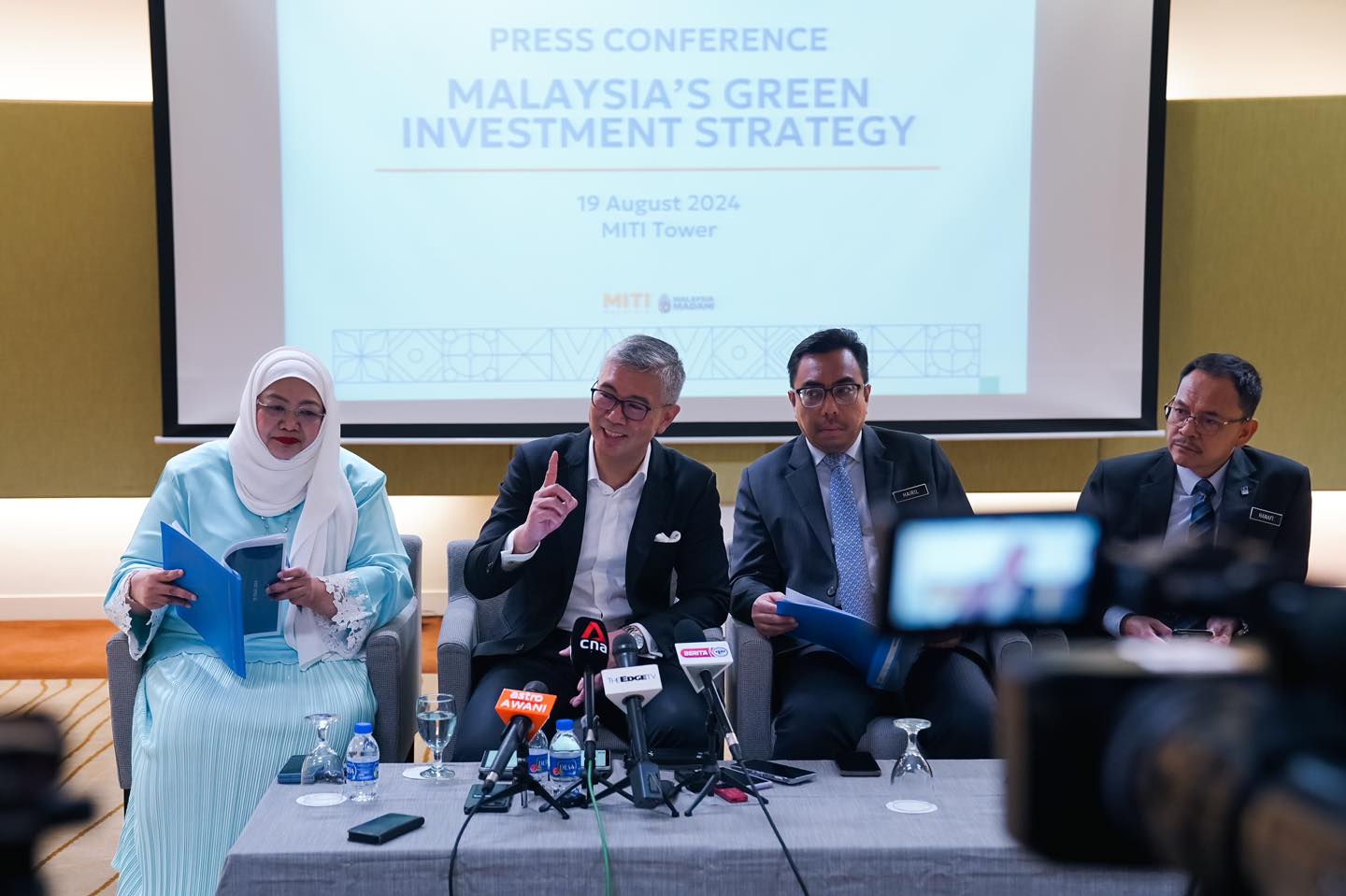
Tengku Zafrul, Malaysia's Minister of Investment, Trade, and Industry, explained the latest green investment strategy on August 19, with the goal of attracting 300 billion ringgit in investments. (Photo: Tengku Zafrul's Facebook)
To advance its green economy, the Malaysian government has set ambitious goals, vowing to significantly increase green investment, with a target of reaching 300 billion ringgit (about 72 billion USD) by 2030.
In addition to seeking incentives from the national budget, the government is also pushing forward with carbon tax policies, planning to use both "carrot" and "stick" approaches to accelerate the achievement of national sustainability goals.
Malaysia expects green investments to contribute 600 billion to GDP
On August 19, the Ministry of Investment, Trade, and Industry (MITI) announced its green investment strategy goals. Compared to the 40 billion ringgit (about 9.6 billion USD) attracted from 2017 to 2023, this target represents a 7.5-fold increase within six years. Minister Tengku Zafrul admitted that the target is quite aggressive but necessary to achieve net zero by 2050.
How will Malaysia become the preferred choice for green investors? Tengku Zafrul indicated that the upcoming 2025 budget proposal will seek additional resources. This includes supporting small and medium-sized enterprises (SMEs) in accelerating their transformation and expanding the scope of investment and financing. While renewable energy and electric vehicles are currently the main sources of investment, the government aims to increase foreign investment, which presently constitutes 65% of total investments.
MITI estimates that the green investment strategy will contribute 80 billion ringgit (about 19 billion USD) to the country’s GDP and create 350,000 high-skilled jobs.

Tengku Zafrul mentioned that the 2025 budget will expand the scope of investment and financing. (Photo: Tengku Zafrul's Facebook)
Carbon tax pressures Malaysian industries
Tengku Zafrul believes that stimulating green investment should involve both "carrot" and "stick" approaches, creating a fair and transparent business environment. The "stick" will primarily be a carbon tax, starting with high-carbon industries.
He noted that without implementing a carbon tax, businesses would lack incentives to reduce carbon emissions, and many developed countries are inclined to impose carbon taxes. Therefore, his ministry is discussing the matter with the Ministry of Finance and the Ministry of Natural Resources and Environment, but it will take at least a year to prepare, so it will not be included in the 2025 budget.
Using the manufacturing sector as an example, he pointed out that one sub-sector's carbon emissions account for 25% of the nation's total carbon emissions. To avoid sudden and chaotic implementation of carbon tax policies and to manage the higher costs of carbon reduction, which could impact short-term competitiveness, he assured that if stringent measures are adopted, they will ensure businesses are well-prepared.
Source: The Sun, Business Times, The Edge(1), (2)


